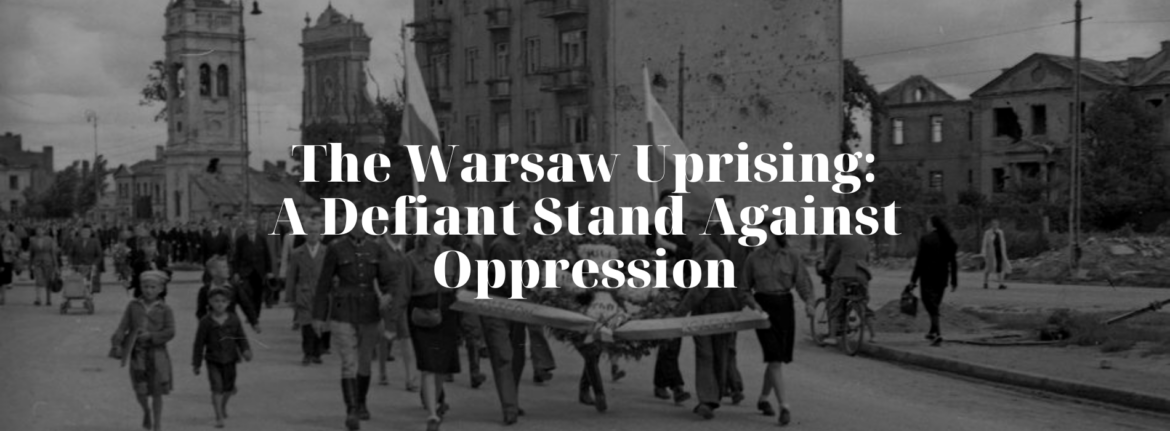Background
The Warsaw Uprising, a significant event in World War II, was a heroic and tragic 63-day struggle by the Polish resistance Home Army (Armia Krajowa) to liberate Warsaw from Nazi German occupation. The uprising began on August 1, 1944, a date that remains a symbol of national pride and resistance in Poland.
The Spark of Rebellion
As the Soviet Army approached Warsaw in July 1944, the Polish Home Army saw an opportunity to rise against the Nazi occupiers. The aim was to liberate the city before the Soviets arrived, to ensure Polish sovereignty and prevent another form of foreign domination. The uprising was part of a nationwide rebellion, Operation Tempest, intended to free Poland from oppressive forces.
The Battle Unfolds
The Warsaw Uprising was a desperate bid for freedom. Young and old, armed mostly with homemade weapons and limited supplies, rose against a well-equipped and ruthless enemy. For 63 days, the fighters, alongside civilian volunteers, battled the German forces with extraordinary bravery and determination. The city turned into a battlefield, with key strategic points and barricades set up in streets and alleys.
The Human Cost
The uprising took a heavy toll. The Nazis, in retaliation, committed horrendous atrocities, massacring civilians and destroying the city systematically. Approximately 200,000 Polish civilians were killed, and 85% of Warsaw was reduced to rubble. The brutal suppression of the uprising was one of the darkest chapters of the war.
The Aftermath and Legacy
The failure of the uprising was devastating. The Soviet Army, stationed just across the Vistula River, did not intervene. The city’s liberation came only in January 1945 when the Soviets entered the ruins of Warsaw. The Warsaw Uprising remains a poignant symbol of resistance against tyranny and the tragic cost of fighting for freedom.
Despite its military defeat, the uprising is celebrated as a testament to the Polish spirit of resistance. It honors the courage and sacrifice of those who fought and died for their homeland. Each year on August 1, Warsaw pays tribute to its heroes with a minute of silence, marking the exact time the uprising began.
Reflection
The Warsaw Uprising is not just a historical event; it represents the universal struggle for national identity, freedom, and dignity against overwhelming odds. It is a reminder of the human capacity for courage in the face of oppression and the immense cost of war on cities and societies. The legacy of the Warsaw Uprising continues to inspire people around the world to stand up for freedom and justice.
